AI and the Law

On 23 September 2025, the Royal Society will hold a conference on AI and the Law.
The rapid advancement of AI as a ubiquitous technology with the potential to impact nearly every facet of our private and public lives poses unique challenges and opportunities for the legal profession, the practice of law, and the administration of justice.
Bringing together leading scientists with prominent members of the legal community, this conference aims to explore the following themes: recent technical advances in AI for law, the importance and limitations of data, the current and potential use of AI within the legal system, and implications of AI for education and training.
Science and the law
The conference is being delivered as part of the Science and the law programme, which is led by Dame Julie Maxton CBE, Executive Director of the Royal Society.
Attending this event
In-person attendance is limited and by invitation only. To request an invitation, please contact law@royalsociety.org
Organisers
Schedule
Chair
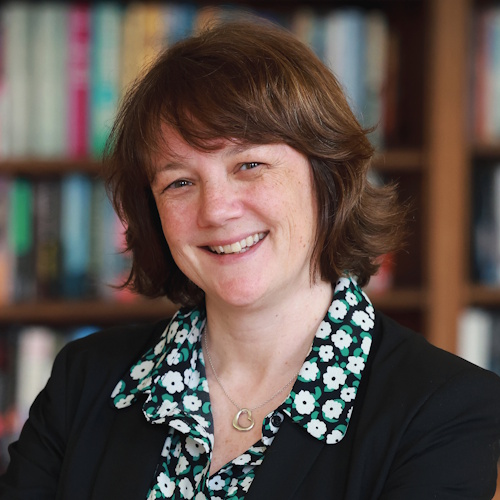
Professor Katie Atkinson
University of Liverpool

Professor Katie Atkinson
University of Liverpool
Professor Katie Atkinson is Associate Pro-Vice-Chancellor and Director of the Interdisciplinary Centre for Sustainability Research at the University of Liverpool, UK. Katie is known internationally for her foundational and interdisciplinary research contributions on artificial intelligence over the past 20 years, with her key areas of research being in the fields of computational models of argument and AI & Law. As Professor of Computer Science, she has published over one hundred and fifty articles in peer-reviewed conference proceedings and journals, and has also applied her work in a variety of industrial projects with small and large law firms. In 2016-2017 Katie served her research community as President of the International Association for AI and Law, and since 2020 she has been a member of the Lawtech UK Panel, a government-backed initiative to help transform the UK legal sector through technology. Katie served on the Computer Science and Informatics sub-panel in the UK Research Excellence Framework (REF) 2021 and in 2024 she was appointed to the Artificial Intelligence Advisory Board of the European Commission for the Efficiency of Justice (CEPEJ). She also holds the roles of Co-Editor-in-Chief of the Artificial Intelligence and Law journal and President of The Foundation for Legal Knowledge-Based Systems (JURIX).
| 09:00-09:10 |
Welcoming remarks
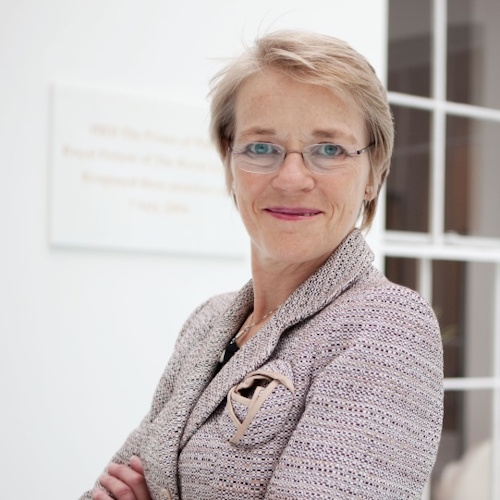
Dame Julie Maxton DBEExecutive Director, The Royal Society 
Dame Julie Maxton DBEExecutive Director, The Royal Society Dame Julie Maxton is the Executive Director of the Royal Society, the first woman in 350 years to hold the post. Before taking up her position at the Royal Society in 2011, Julie was Registrar at the University of Oxford, the first woman in 550 years in the role. She is an Honorary Fellow of University College Oxford, a Bencher of the Middle Temple and a Freeman of the Goldsmith’s Company. She is Chair of the Ada Lovelace Institute and of the Kalisher Trust. In the past she has also been on the Boards of the Alan Turing Institute, Blavatnik School of Government in Oxford, Haberdasher Aske’s School (Elstree), Engineering UK, Charities Aid Foundation, The Faraday Institute and Sense about Science. Originally trained as a barrister at the Middle Temple, Julie combined a career as a practising lawyer with that of an academic, holding a number of senior academic positions, including those of Deputy Vice Chancellor, Professor and Dean of the Faculty of Law at the University of Auckland, New Zealand. Academic and other recognition Julie has received include a CBE (2017), a DBE (2023), and Honorary Degrees from the Universities of Huddersfield, Warwick, Canterbury, Hull, Bristol and Brunel. She is the author of numerous articles concerned with trusts, equity, commercial and property law. |
|---|---|
| 09:10-09:15 |
Introduction to the opening keynote

Professor Katie AtkinsonUniversity of Liverpool 
Professor Katie AtkinsonUniversity of Liverpool Professor Katie Atkinson is Associate Pro-Vice-Chancellor and Director of the Interdisciplinary Centre for Sustainability Research at the University of Liverpool, UK. Katie is known internationally for her foundational and interdisciplinary research contributions on artificial intelligence over the past 20 years, with her key areas of research being in the fields of computational models of argument and AI & Law. As Professor of Computer Science, she has published over one hundred and fifty articles in peer-reviewed conference proceedings and journals, and has also applied her work in a variety of industrial projects with small and large law firms. In 2016-2017 Katie served her research community as President of the International Association for AI and Law, and since 2020 she has been a member of the Lawtech UK Panel, a government-backed initiative to help transform the UK legal sector through technology. Katie served on the Computer Science and Informatics sub-panel in the UK Research Excellence Framework (REF) 2021 and in 2024 she was appointed to the Artificial Intelligence Advisory Board of the European Commission for the Efficiency of Justice (CEPEJ). She also holds the roles of Co-Editor-in-Chief of the Artificial Intelligence and Law journal and President of The Foundation for Legal Knowledge-Based Systems (JURIX). |
| 09:15-09:50 |
Opening keynote and Q&A
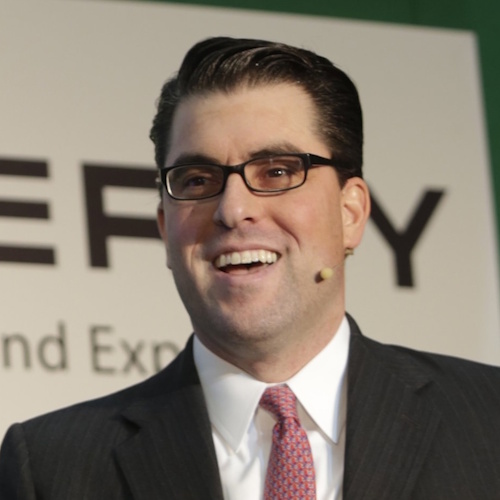
Professor Daniel Martin KatzIllinois Tech - Chicago Kent College of Law 
Professor Daniel Martin KatzIllinois Tech - Chicago Kent College of Law Professor Daniel Martin Katz is a scientist, technologist and professor who applies an innovative polytechnic approach to teaching law - to help create lawyers for today's biggest societal challenges. Both his scholarship and teaching integrate science, technology, engineering, and mathematics. Beyond his academic work he has built two legal AI businesses including LexPredict (acquired by Elevate in 2018) and his new company 273 Ventures (creators of the Kelvin Legal Data OS). The Financial Times recently named Professor Katz as one of the top 20 legal market shapers of the past 20 years for his academic and commercial work advancing the state of AI in the law. |
Chair

Professor Katie Atkinson
University of Liverpool

Professor Katie Atkinson
University of Liverpool
Professor Katie Atkinson is Associate Pro-Vice-Chancellor and Director of the Interdisciplinary Centre for Sustainability Research at the University of Liverpool, UK. Katie is known internationally for her foundational and interdisciplinary research contributions on artificial intelligence over the past 20 years, with her key areas of research being in the fields of computational models of argument and AI & Law. As Professor of Computer Science, she has published over one hundred and fifty articles in peer-reviewed conference proceedings and journals, and has also applied her work in a variety of industrial projects with small and large law firms. In 2016-2017 Katie served her research community as President of the International Association for AI and Law, and since 2020 she has been a member of the Lawtech UK Panel, a government-backed initiative to help transform the UK legal sector through technology. Katie served on the Computer Science and Informatics sub-panel in the UK Research Excellence Framework (REF) 2021 and in 2024 she was appointed to the Artificial Intelligence Advisory Board of the European Commission for the Efficiency of Justice (CEPEJ). She also holds the roles of Co-Editor-in-Chief of the Artificial Intelligence and Law journal and President of The Foundation for Legal Knowledge-Based Systems (JURIX).
| 09:50-09:55 |
Introduction to session 1

Professor Katie AtkinsonUniversity of Liverpool 
Professor Katie AtkinsonUniversity of Liverpool Professor Katie Atkinson is Associate Pro-Vice-Chancellor and Director of the Interdisciplinary Centre for Sustainability Research at the University of Liverpool, UK. Katie is known internationally for her foundational and interdisciplinary research contributions on artificial intelligence over the past 20 years, with her key areas of research being in the fields of computational models of argument and AI & Law. As Professor of Computer Science, she has published over one hundred and fifty articles in peer-reviewed conference proceedings and journals, and has also applied her work in a variety of industrial projects with small and large law firms. In 2016-2017 Katie served her research community as President of the International Association for AI and Law, and since 2020 she has been a member of the Lawtech UK Panel, a government-backed initiative to help transform the UK legal sector through technology. Katie served on the Computer Science and Informatics sub-panel in the UK Research Excellence Framework (REF) 2021 and in 2024 she was appointed to the Artificial Intelligence Advisory Board of the European Commission for the Efficiency of Justice (CEPEJ). She also holds the roles of Co-Editor-in-Chief of the Artificial Intelligence and Law journal and President of The Foundation for Legal Knowledge-Based Systems (JURIX). |
|---|---|
| 09:55-10:10 |
Talk 1
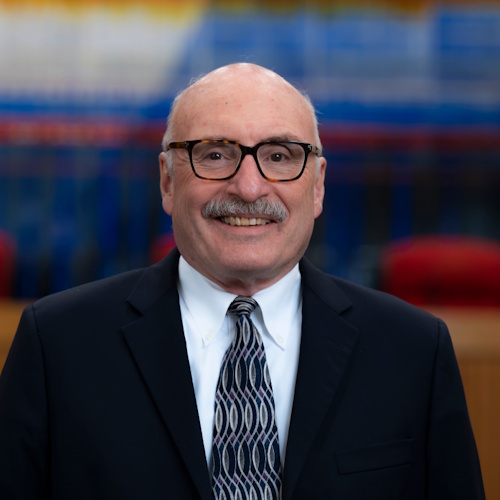
Professor Kevin D. AshleyUniversity of Pittsburgh 
Professor Kevin D. AshleyUniversity of Pittsburgh Kevin D. Ashley, Ph.D., is an expert on computer modeling of legal reasoning. In 2002 he was selected as a Fellow of the American Association of Artificial Intelligence “for significant contributions in computationally modeling case-based and analogical reasoning in law and practical ethics.” He is co-editor in chief of Artificial Intelligence and Law and has been a principal investigator of several National Science Foundation grants. He is the author of Modeling Legal Argument: Reasoning with Cases and Hypotheticals (MIT Press/Bradford Books, 1990) and of Artificial Intelligence and Legal Analytics: New Tools for Law Practice in the Digital Age (Cambridge University Press, 2017). He is a Professor of Law and Intelligent Systems, Senior Scientist at the Learning Research and Development Center, an adjunct professor of computer science, and a faculty member of the Graduate Program in Intelligent Systems of the University of Pittsburgh. |
| 10:10-10:25 |
Talk 2
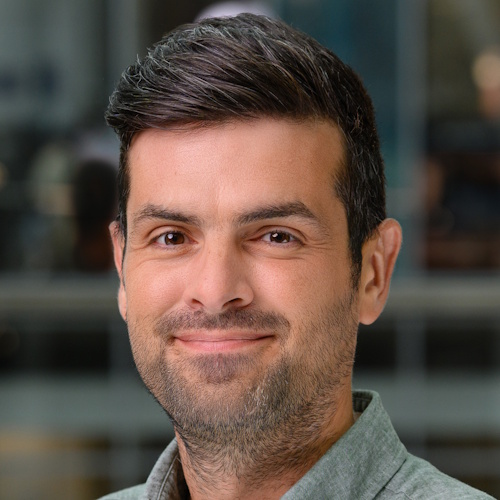
Professor Nikos AletrasUniversity of Sheffield 
Professor Nikos AletrasUniversity of Sheffield Nikos Aletras is a Professor of Natural Language Processing (NLP), currently leading the NLP group at the School of Computer Science, University of Sheffield and an Amazon Scholar. His research focus is in developing data and resource efficient methods for language modelling, model interpretability, and applications of language technology in computational social science and law. In 2016, he pioneered the first approach to model judicial decisions using NLP. Nikos has authored more than 90 peer-reviewed papers in NLP and related fields such as machine learning and information retrieval, published in the main proceedings of leading international conferences. He was involved in developing LegalBERT models (>12M downloads from the HuggingFace library) and LexGLUE, a widely used legal natural language understanding benchmark (>500K downloads to-date). Nikos' work has received media coverage from the BBC, the Guardian, the Wall Street Journal, the Washington Post, the New Scientist and the Communications of ACM. |
| 10:25-10:40 |
Talk 3

Mr Justice JohnsonJudiciary 
Mr Justice JohnsonJudiciary Jeremy was brought up in Sheffield and studied Maths and Philosophy at Oxford University. He then completed the law Common Professional Examination at Middlesex University. Called to the Bar in 1994, Jeremy practised in general common law and public law, often acting in cases involving the police and Government Departments. He was also a Special Advocate, acting in cases concerning national security, and a member of the Attorney General’s Panels for the conduct of civil litigation on behalf of the Government. He was appointed as a Recorder in 2010, a Queen’s Counsel in 2011, a Deputy High Court Judge in 2016 and a High Court Judge (Queen’s Bench Division) in 2019. Jeremy serves as the Judiciary’s Lead on IT and as a presiding judge for the South Eastern Circuit. |
| 10:40-10:50 |
Q&A
|
Chair
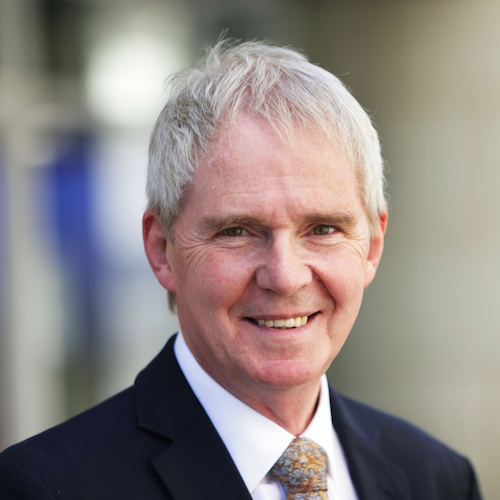
Professor Sir Nigel Shadbolt
Principal of Jesus College, Oxford

Professor Sir Nigel Shadbolt
Principal of Jesus College, Oxford
Professor Sir Nigel Shadbolt is a leading researcher in Artificial Intelligence (AI) and was one of the originators of the interdisciplinary field of Web Science. He is Principal of Jesus College Oxford and a Professor of Computing Science at the University of Oxford. He is chairman of the Open Data Institute which he co-founded with Sir Tim Berners-Lee. In 2009 he was appointed Information Advisor by the Prime Minister and, working with Sir Tim Berners-Lee, led the development of the highly acclaimed data.gov.uk website. In 2010, he joined the UK government’s Public Sector Transparency Board – overseeing Open Data releases across the public sector. He continues to advise Government in a number of roles and in 2025 he was appointed to the Council for Science and Technology, which advises the Prime Minister and the Cabinet on strategic science and technology policy issues that cut across the responsibilities of individual government departments.
Nigel was knighted in 2013 for ‘services to science and engineering’.
Nigel has a degree in Philosophy and Psychology from the University of Newcastle and a PhD in Artificial Intelligence from the University of Edinburgh. In 1983 he joined the Department of Psychology at Nottingham where he established and led a vibrant AI group. In 1992 he became the Allan Standen Professor of Intelligent Systems. He moved to Southampton’s School of Electronics and Computer Science in 2000. At Southampton he researched the next generation of the World Wide Web and was the first Head of the Web and Internet Science Group. At Oxford he has focused his research in human centred AI in a wide range of applications. Most recently he was asked to lead the setting up of the Oxford Institute of Ethics in AI.
With over 500 publications, he has researched and published on topics ranging from cognitive psychology to computational neuroscience, Artificial Intelligence to the Semantic Web. In 2018 he published ‘The Digital Ape: how to live (in peace) with smart machines’, described as a ‘landmark book’. In May 2024 he published ‘As If Human’, which provides a new approach to the challenges surrounding AI.
He is a Fellow of The Royal Society, the Royal Academy of Engineering and the British Computer Society.
| 11:20-12:30 |
Introduction to session 2

Professor Sir Nigel ShadboltPrincipal of Jesus College, Oxford 
Professor Sir Nigel ShadboltPrincipal of Jesus College, Oxford Professor Sir Nigel Shadbolt is a leading researcher in Artificial Intelligence (AI) and was one of the originators of the interdisciplinary field of Web Science. He is Principal of Jesus College Oxford and a Professor of Computing Science at the University of Oxford. He is chairman of the Open Data Institute which he co-founded with Sir Tim Berners-Lee. In 2009 he was appointed Information Advisor by the Prime Minister and, working with Sir Tim Berners-Lee, led the development of the highly acclaimed data.gov.uk website. In 2010, he joined the UK government’s Public Sector Transparency Board – overseeing Open Data releases across the public sector. He continues to advise Government in a number of roles and in 2025 he was appointed to the Council for Science and Technology, which advises the Prime Minister and the Cabinet on strategic science and technology policy issues that cut across the responsibilities of individual government departments. Nigel was knighted in 2013 for ‘services to science and engineering’. Nigel has a degree in Philosophy and Psychology from the University of Newcastle and a PhD in Artificial Intelligence from the University of Edinburgh. In 1983 he joined the Department of Psychology at Nottingham where he established and led a vibrant AI group. In 1992 he became the Allan Standen Professor of Intelligent Systems. He moved to Southampton’s School of Electronics and Computer Science in 2000. At Southampton he researched the next generation of the World Wide Web and was the first Head of the Web and Internet Science Group. At Oxford he has focused his research in human centred AI in a wide range of applications. Most recently he was asked to lead the setting up of the Oxford Institute of Ethics in AI. With over 500 publications, he has researched and published on topics ranging from cognitive psychology to computational neuroscience, Artificial Intelligence to the Semantic Web. In 2018 he published ‘The Digital Ape: how to live (in peace) with smart machines’, described as a ‘landmark book’. In May 2024 he published ‘As If Human’, which provides a new approach to the challenges surrounding AI. He is a Fellow of The Royal Society, the Royal Academy of Engineering and the British Computer Society. |
|---|---|
| 11:25-12:30 |
Panel discussion
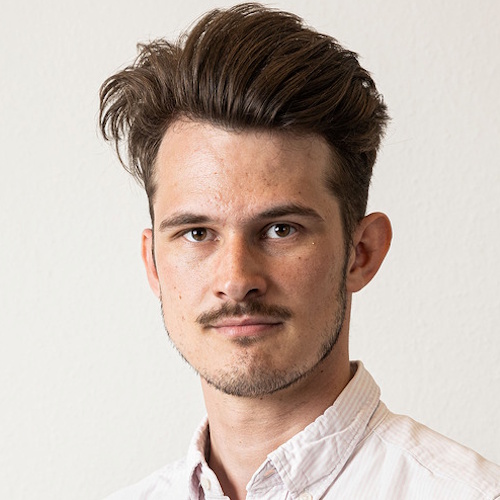
Dr Konrad KollnigMaastricht University 
Dr Konrad KollnigMaastricht University Dr Konrad Kollnig is assistant professor at Maastricht University's Law Faculty, holding a PhD in Computer Science from the University of Oxford. In this capacity, he teaches and researches at the intersection of law and AI. He particularly focuses on the future of AI regulation (leading the RegTech4AI project with 5 researchers), holding online platforms to account (co-leading the CoCoDa project across the UK, Switzerland and the EU) and building a more resilient digital infrastructure (in his latest book). His PhD thesis pioneered the large-scale analysis of privacy law compliance and received the Stefano Rodotà Award 2024 of the Council of Europe — the most prestigious award in his field of research, awarded to one PhD thesis annually. 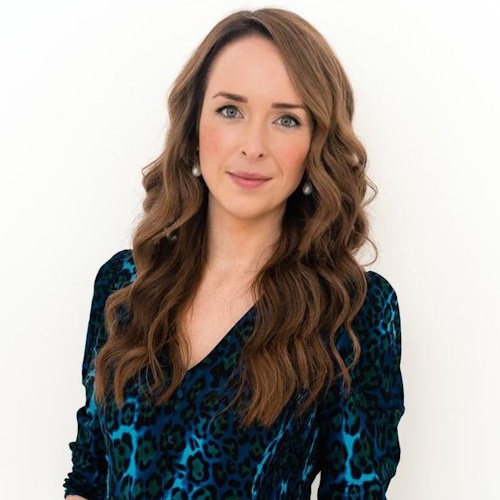
Dr Natalie ByromUCL 
Dr Natalie ByromUCL |
Chair
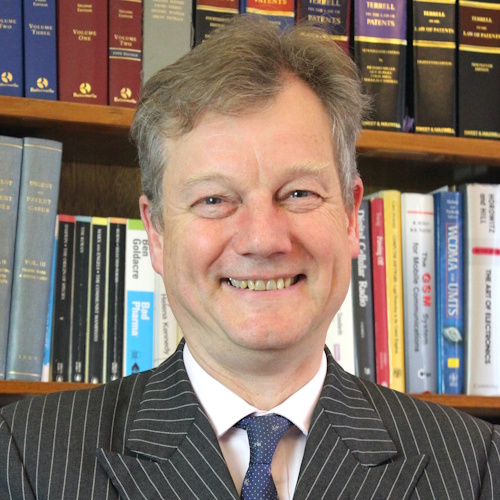
Lord Justice Birss
Deputy Head of Civil Justice

Lord Justice Birss
Deputy Head of Civil Justice
Colin Birss is a judge of the Court of Appeal of England and Wales and Deputy Head of Civil Justice. He was called to the English Bar in 1990 and practiced in intellectual property law, taking silk in 2008. In 2010 Colin Birss went on the bench, first as judge of the Patents County Court (now IPEC)) and then, in 2013, to the High Court. In 2019 he became Judge in Charge of the Patents Court and in 2021 was appointed to his current roles.
| 13:20-13:25 |
Introduction to session 3

Lord Justice BirssDeputy Head of Civil Justice 
Lord Justice BirssDeputy Head of Civil Justice Colin Birss is a judge of the Court of Appeal of England and Wales and Deputy Head of Civil Justice. He was called to the English Bar in 1990 and practiced in intellectual property law, taking silk in 2008. In 2010 Colin Birss went on the bench, first as judge of the Patents County Court (now IPEC)) and then, in 2013, to the High Court. In 2019 he became Judge in Charge of the Patents Court and in 2021 was appointed to his current roles. |
|---|---|
| 13:25-13:40 |
Talk 1

Philip YoungGarfield AI 
Philip YoungGarfield AI Philip is the co-founder and CEO of Garfield AI. Garfield AI is authorised and regulated by the Solicitors Regulation Authority and is the first law firm authorised anywhere in the world to provide legal services via AI. Garfield is a web based, AI powered, software application that assists businesses to recover their debts of up to £10k through the small claims Court process in England & Wales easily, quickly, and affordably. Philip is a solicitor and a solicitor advocate. On qualification, he joined Baker & McKenzie and spent eight years primarily in B&M’s London (and also Hong Kong) offices, specialising in complex commercial litigation and arbitration. In 2009 he co-founded London law firm Cooke, Young & Keidan LLP, a “boutique” London law firm that specialises in complex commercial dispute resolution. He retired from practice in 2022 and in 2023, and with physicist Daniel Long he co-founded Garfield AI. Separately, he sits as a member of the advisory committee of Winward Litigation Finance, a commercial litigation funder. |
| 13:40-13:55 |
Talk 2
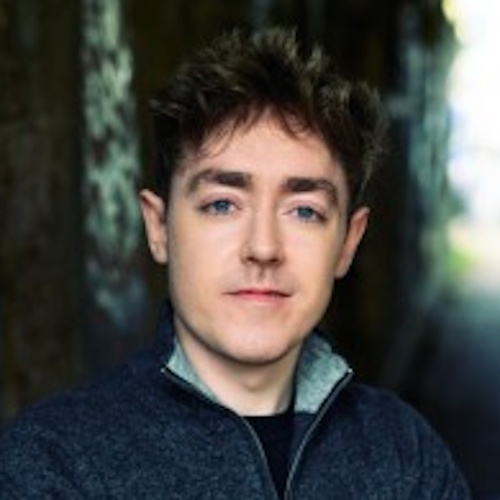
Dan JamesChief AI Officer, Ministry of Justice 
Dan JamesChief AI Officer, Ministry of Justice Dan James is Chief AI Officer at the Ministry of Justice, where he set up the Justice AI Unit, a small team working in new ways to bring responsible AI into the justice system. He was previously a No.10 Innovation Fellow, helping government explore how to use AI well on top priority projects such as the pandemic response. Before that, he worked in the private sector scaling AI and data products internationally, and founded Jobgraph, a company researching the future of work and how technology is reshaping society. In his spare time, he enjoys playing piano, mountain biking, and learning Welsh, with a little help from ChatGPT. |
| 13:55-14:10 |
Talk 3
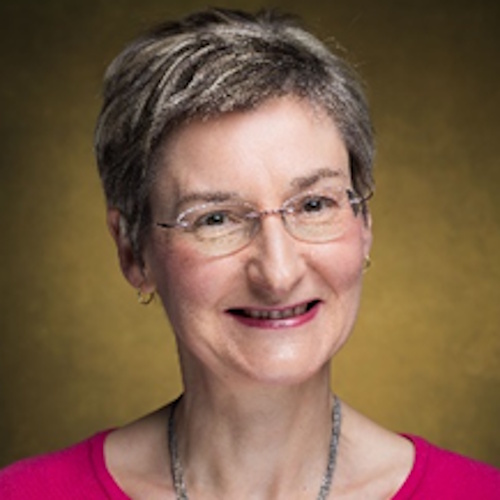
Professor Dame Muffy Calder FREng FRSEUniversity of Glasgow 
Professor Dame Muffy Calder FREng FRSEUniversity of Glasgow Professor Dame Muffy Calder FREng FRSE is a Computer Scientist with expertise in computational modelling and automated reasoning, telecommunications, responsible AI, and privacy and national security. She has worked with Marion Oswald, a Professor of Law, for several years. Until recently she was Vice-Principal and Head of College of Science and Engineering, at the University of Glasgow, before that she was the Chief Scientific Adviser for Scotland. She has been a Royal Society Leverhulme Research Senior Fellow, member of the Prime Minister’s Council for Science and Technology, and is Chair of the IPCO (Investigatory Powers Commissioners Office) Technology Advisory Panel. |
| 14:10-14:25 |
Talk 4

Professor Felix SteffekUniversity of Cambridge 
Professor Felix SteffekUniversity of Cambridge Felix Steffek is Professor of Law at the University of Cambridge and Senior Member of Newnham College. He serves as Deputy Chair of the Faculty of Law, Director of the Centre for Corporate and Commercial Law (3CL) and holds a University JM Keynes Fellowship in Financial Economics. He is Global Distinguished Professor of Law at the University of Notre Dame and Research Member of the European Corporate Governance Institute (ECGI). His research interests cover artificial intelligence, dispute resolution, corporate finance law, insolvency law and commercial law. He has advised international organisations, governments, parliaments and courts in these areas. He represents law on the Academic Publishing Committee of Cambridge University Press. Felix Steffek is leading multiple research projects on artificial intelligence and law, among them the Nuffield Foundation funded project on ‘Access to Justice Through Artificial Intelligence’ and the AHRC funded project on ‘Explainable and Ethical Legal Artificial Intelligence’. |
| 14:25-14:35 |
Q&A
|
Chair

Anthony Hughes, Lord Hughes of Ombersley
Former Judge of the Supreme Court, UK

Anthony Hughes, Lord Hughes of Ombersley
Former Judge of the Supreme Court, UK
Lord Hughes of Ombersley (Anthony) Is a retired judge. After Van Mildert College, Durham, he briefly lectured in law at Durham and Queen Mary College London before going to the Bar in Birmingham chambers in 1971. Silk 1990. Judge 1997 until 2018 successively in the Family Division, the Queen’s Bench Division, the Court of Appeal (Vice President of the Criminal Division) and the Supreme Court. Since retirement he has been a Judicial Commissioner for the Investigatory Powers Commission, a co-ordinator of the Royal Society’s Science and Law project (Hon FRS 2024) and Chairman of a public inquiry. He lives in Worcestershire, where he is an active charity trustee. He attempts to remain approximately sane via garden effort, bellringing and veteran rowing. He is married to a former biochemist; they have two grown-up children.
| 14:55-15:00 |
Introduction to session 4

Anthony Hughes, Lord Hughes of OmbersleyFormer Judge of the Supreme Court, UK 
Anthony Hughes, Lord Hughes of OmbersleyFormer Judge of the Supreme Court, UK Lord Hughes of Ombersley (Anthony) Is a retired judge. After Van Mildert College, Durham, he briefly lectured in law at Durham and Queen Mary College London before going to the Bar in Birmingham chambers in 1971. Silk 1990. Judge 1997 until 2018 successively in the Family Division, the Queen’s Bench Division, the Court of Appeal (Vice President of the Criminal Division) and the Supreme Court. Since retirement he has been a Judicial Commissioner for the Investigatory Powers Commission, a co-ordinator of the Royal Society’s Science and Law project (Hon FRS 2024) and Chairman of a public inquiry. He lives in Worcestershire, where he is an active charity trustee. He attempts to remain approximately sane via garden effort, bellringing and veteran rowing. He is married to a former biochemist; they have two grown-up children. |
|---|---|
| 15:00-15:15 |
Talk 1
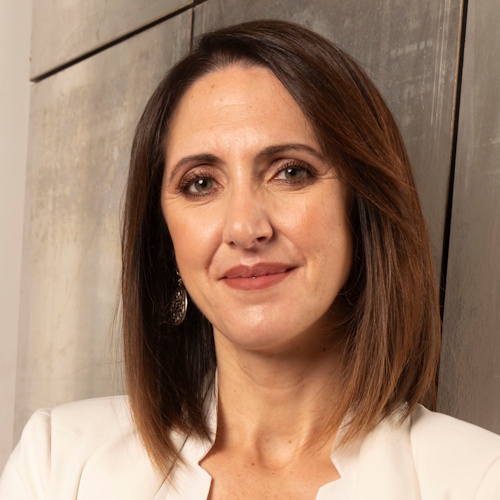
Professor Mariarosaria TaddeoOxford Internet Institute, University of Oxford 
Professor Mariarosaria TaddeoOxford Internet Institute, University of Oxford Mariarosaria Taddeo is Professor of Digital Ethics and Defence Technologies at the Oxford Internet Institute of the University of Oxford. Her work focuses on the ethics and governance of digital technologies, particularly of digital technologies used for national security and defence purposes. Her work has been published in Nature, Nature Machine Intelligence, Science, and Science Robotics. She serves on the Ethics Advisory Panel of the UK Ministry of Defence and has received multiple awards, among which the title of Grand Ufficiale al Merito della Repubblica Italiana awarded the President of the Italian Republic Sergio Mattarella; and the World Technology Award for Ethics. InspiringFifty named her among the top 50 Italian women working in technology. ORBIT listed her among the top 100 women in the Ethics of AI globally and ComputerWeekly among the top 100 women in technology in the UK. She is the author of The Ethics of Artificial Intelligence (Oxford University Press). |
| 15:15-15:30 |
Talk 2
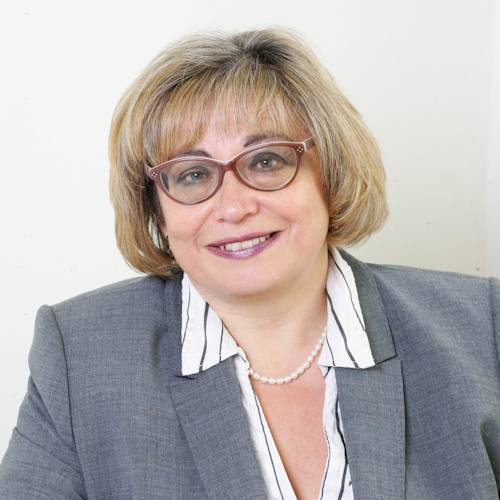
Emerita Professor Lilian EdwardsNewcastle University / CREATe, Glasgow University 
Emerita Professor Lilian EdwardsNewcastle University / CREATe, Glasgow University Lilian Edwards is a leading academic in the field of Internet law. She has taught information technology law, e-commerce law, privacy law and Internet law at undergraduate and postgraduate level and has been involved with law and artificial intelligence (AI) since 1985. She worked at the University of Strathclyde and the University of Edinburgh. She became Chair of Internet Law at the University of Southampton, and then Professor of Internet Law at the University of Sheffield until late 2010, when she returned to Scotland to become Professor of E-Governance at the University of Strathclyde. She resigned from that role in 2018 to take up a new Chair in Law, Innovation and Society at Newcastle University. She is a partner in the Horizon Digital Economy Hub at Nottingham, the lead for the Alan Turing Institute on Law and AI, and a fellow of the Institute for the Future of Work. At Newcastle, she is the theme lead in the data NUCore for the Regulation of Data. She currently holds grants from the AHRC and the Leverhulme Trust. Edwards has consulted for inter alia the EU Commission, the OECD, and WIPO. |
| 15:30-15:45 |
Talk 3
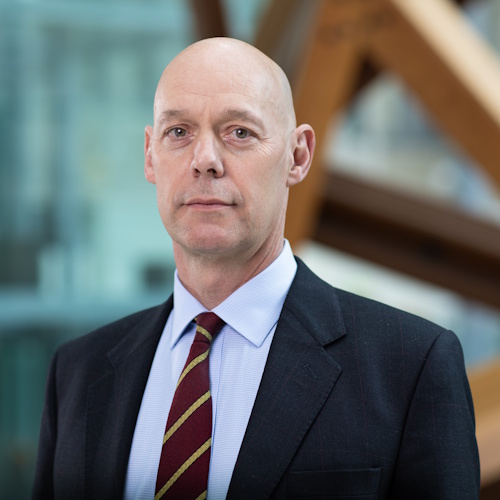
Lord Justice Fraser

Lord Justice FraserLord Justice Fraser was called to the Bar (Middle Temple) in 1989 and took Silk in 2009. He was appointed a Recorder of the Crown Court in 2002, and Queen’s Counsel (now King’s Counsel) in 2009. He also sat as an arbitrator internationally. He was appointed a High Court Judge in 2015, and was Judge in Charge of the Technology and Construction Court from 2017 to 2020. He became a Judge of the Commercial Court in 2021. Lord Justice Fraser took over as Chair of the Law Commission on 1 December 2023, and became a Lord Justice of Appeal on 15 December 2023. |
| 15:45-15:55 |
Q&A
|
Chair
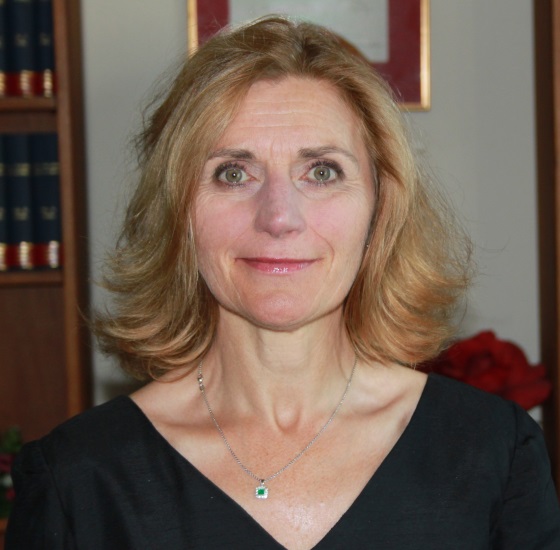
Dame Anne Rafferty

Dame Anne Rafferty
Dame Anne Rafferty read Law at Sheffield which in 2005 awarded her an Ll.D, was called by Gray’s Inn and began pupillage in 1974. She became a QC in 1990 and a Recorder in 1991. She is married to His Honour Brian Barker CBE KC, the former Recorder of London, and has three daughters.
She was Head of Chambers at 4, Brick Court, (now 9, Bedford Row) 1994–2000. At the Criminal Bar Association she sat on the Committee 1986–1991, was Secretary 1989–1991, *Vice-Chairman 1993–1995, and *Chairman 1995–1997. She was *Chairman of the Bar Conference 1992. She was the only barrister on the Royal Commission on Criminal Justice 1991–1993. On the Pigot Committee 1988–1989 she wrote the recommendation now reflected in video-recorded interviews and subsequently of the evidence (in advance of trial) of vulnerable witnesses.
She was *Presiding Judge of the South Eastern Circuit 2003–2006.
She was a member of the Sentencing Council 2009–2012.
She was made a High Court Judge in 2000 and a Lord Justice of Appeal in 2011.
She was de facto *Chairman of the Criminal Procedure Rule Committee from 2012–2017.
She became Chairman of the Judicial College in August 2014.
In November 2015 she was installed as *Chancellor of the University of Sheffield.
In 2017 she was appointed Vice Chairman of the Judicial Appointments Commission.
* = first woman
| 16:15-16:20 |
Introduction to session 5

Dame Anne Rafferty

Dame Anne RaffertyDame Anne Rafferty read Law at Sheffield which in 2005 awarded her an Ll.D, was called by Gray’s Inn and began pupillage in 1974. She became a QC in 1990 and a Recorder in 1991. She is married to His Honour Brian Barker CBE KC, the former Recorder of London, and has three daughters. She was Head of Chambers at 4, Brick Court, (now 9, Bedford Row) 1994–2000. At the Criminal Bar Association she sat on the Committee 1986–1991, was Secretary 1989–1991, *Vice-Chairman 1993–1995, and *Chairman 1995–1997. She was *Chairman of the Bar Conference 1992. She was the only barrister on the Royal Commission on Criminal Justice 1991–1993. On the Pigot Committee 1988–1989 she wrote the recommendation now reflected in video-recorded interviews and subsequently of the evidence (in advance of trial) of vulnerable witnesses. She was *Presiding Judge of the South Eastern Circuit 2003–2006. She was a member of the Sentencing Council 2009–2012. She was made a High Court Judge in 2000 and a Lord Justice of Appeal in 2011. She was de facto *Chairman of the Criminal Procedure Rule Committee from 2012–2017. She became Chairman of the Judicial College in August 2014. In November 2015 she was installed as *Chancellor of the University of Sheffield. In 2017 she was appointed Vice Chairman of the Judicial Appointments Commission. * = first woman |
|---|---|
| 16:20-17:15 |
Panel Discussion
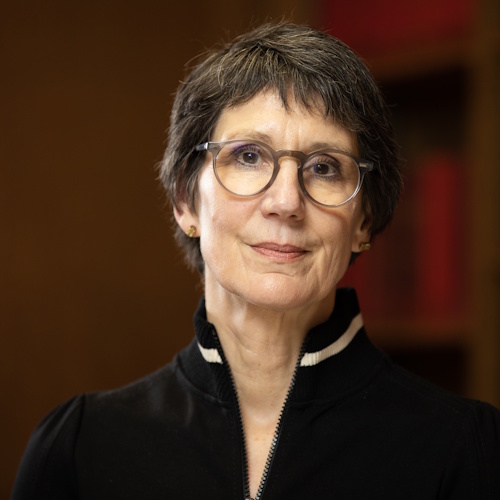
Lady Justice Eleanor KingCourt of Appeal 
Lady Justice Eleanor KingCourt of Appeal Lady Justice King was called to the Bar at Inner Temple in 1979. She was appointed as a QC (now KC) in 1999. She was made a Bencher of Inner Temple in 2008. In 2008, Lady Justice King was appointed to the High Court within the Family Division and was the Family Division Liaison Judge, firstly to the Northern Circuit and then the Midland Circuit from 2010 to 2014. In October 2014, she was appointed as a Lady Justice of Appeal. In July 2020, she was appointed Chair of the Judicial College. 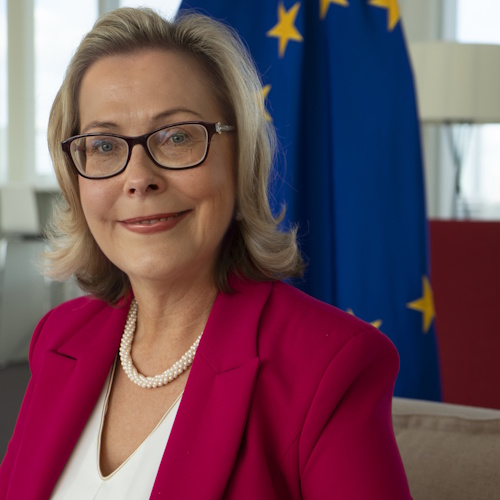
Signe RatsoDG RTD, EU Commission 
Signe RatsoDG RTD, EU Commission Signe Ratso is Deputy Director-General and a member of the Management Board of the Directorate-General for Research and Innovation of the European Commission. She is responsible for Innovation, Prosperity and International Cooperation Directorates and she is Chief negotiator for association policy on Horizon Europe. She has taken up the direct lead for international cooperation with Europe, Americas and thematic coherence as well as Asia, Africa, Middle East & External Relations. She oversees some of the priority areas of the Commission in DG R&I such as the Human Frontier Science Program. During the period September 2024 – April 2025 she has had also stepped in the role of acting Director of Directorate A “ERA & Innovation”, which is responsible for European Semester, European Research Area, European Innovation Council, Open Science and Research Infrastructures, and Access to Finance among others. Before joining DG R&I in 2018 she worked in different senior management positions in DG TRADE since 2006. Signe Ratso has always been involved in international affairs. Before joining the Commission she worked as Deputy Secretary General (from 1994 to 2005) at the Ministry of Economic Affairs and Communications of the Republic of Estonia. She has two University degrees from Tartu University in Estonia. 
Dr Alex ShattockLandmark Chambers 
Dr Alex ShattockLandmark Chambers Alex is a barrister at Landmark Chambers specialising in environmental, public and planning law. He has acted for many of the major environmental NGOs in the UK. His work includes technical and scientific matters such as fossil fuel extraction, carbon emissions, sewage and agricultural pollution, genetically modified organisms, and pesticide licensing. Alex maintains an active interest in AI as a legal training and research tool and is a member of Landmark’s AI working group. He has a PhD in public international law. 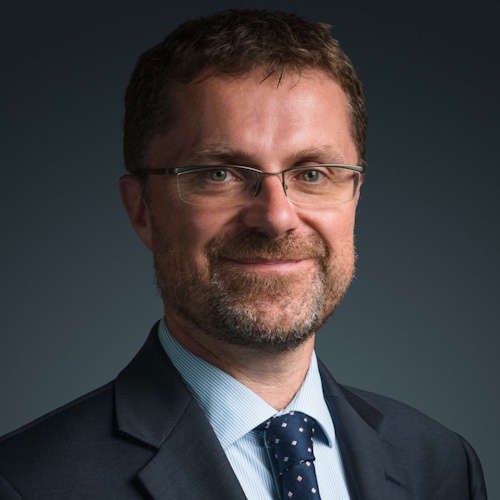
David LawsonSerjeants' Inn Chambers 
David LawsonSerjeants' Inn Chambers David Lawson is a barrister practising in public law in the fields of health, education and social care and in public inquiries. Cases in the last year include the recoverability of the costs of making private provision for a patient who rejects NHS care, whether local authorities or central government have to accommodate disabled people on immigration bail awaiting deportation, discrimination in the funding of further education and work on several public inquiries. He is head of the Public Law Group at Serjeants’ Inn Chambers and on the board of the Education Law Association. He has seen growing – but not yet constructive – use of AI in litigation. |
Chair

Lord Justice Birss
Deputy Head of Civil Justice

Lord Justice Birss
Deputy Head of Civil Justice
Colin Birss is a judge of the Court of Appeal of England and Wales and Deputy Head of Civil Justice. He was called to the English Bar in 1990 and practiced in intellectual property law, taking silk in 2008. In 2010 Colin Birss went on the bench, first as judge of the Patents County Court (now IPEC)) and then, in 2013, to the High Court. In 2019 he became Judge in Charge of the Patents Court and in 2021 was appointed to his current roles.
